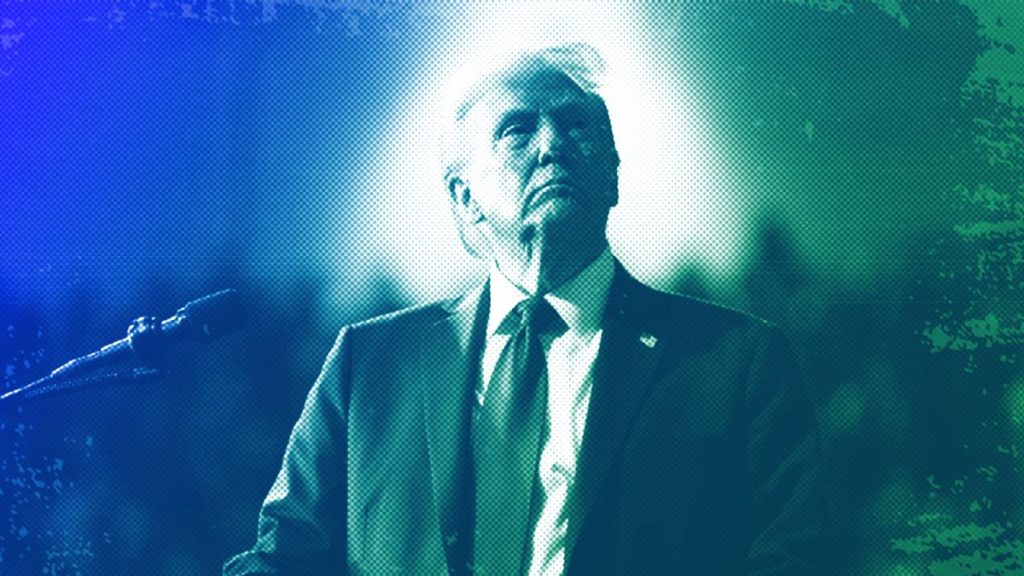In her article, Graziella Romeo argues that the foundation of democratic principles cannot rest solely on enlightened leadership but requires a broad, inclusive consensus among the populace. Referencing Richard Hofstadter’s analysis of the “paranoid style” in American politics, she draws parallels to the contemporary political climate, particularly during Donald Trump’s presidency. Hofstadter’s observations, originally made during Barry Goldwater’s 1964 campaign, highlight a recurring tendency within American political discourse to frame opponents as existential threats to the nation. This sense of paranoia fueled extreme measures aimed at preserving perceived freedoms, echoing throughout the decades, especially evident in the violent insurrection on January 6, 2021. The Capitol riot serves as a stark reminder that inflammatory political messaging can lead to real-world violence, testing the resilience of constitutional democracy and calling into question the effectiveness of established legal safeguards.
The escalation of cultural anxiety in the United States, intensified by demographic changes, presents a significant challenge. The once-dominant demographic—white, male, and Protestant—feels threatened by emerging narratives of identity politics that aim to address inequality and social injustice. Hence, a political movement has emerged, positioning itself as the last bastion of traditional American values while fostering fears of displacement in a rapidly changing society. The diverging paths of political discourse—a turn towards broader social issues on one side and a retrenchment into identity politics on the other—underscore the urgent need for a national dialogue that emphasizes peace, compromise, and inclusivity as fundamental components of a thriving democracy.
In light of the ongoing American political turmoil, the implications for Europe cannot be overlooked. European nations are grappling with similar social conflicts that arise from cultural fragmentation, economic disparity, and populist sentiments. The tensions within the U.S. may serve as a foreshadowing of the challenges that European democracies are already facing or will encounter increasingly in the future. Issues related to immigration, globalization, and evolving social norms evoke anxieties that resonate across the Atlantic, suggesting a shared fragility in democratic norms that need nurturing and fortification.
The survival of constitutional democracy depends on the capacity of political entities to maintain respect for disagreement, embody robust political processes, and foster participation mechanisms that protect fundamental freedoms, including speech and voting rights. With the growing threat posed by divisive rhetoric and polarization, it becomes essential for democratic systems to engage citizens actively in preserving their health, both institutionally and socially. Mutual respect for differing opinions is critical, illustrating that disagreement is not only acceptable but vital for democratic evolution. This collaborative approach is necessary to navigate through prevailing divides and instill a sense of hope and unity.
Romeo posits that the unfolding dynamics surrounding the current U.S. election may serve as a wake-up call for Europe to reassess its own democratic integrity. Countries in Europe must reflect on their political narratives and prioritize bolstering their democratic frameworks amidst rising tensions. The challenges faced by American democracy can catalyze introspection in European societies to ensure political resilience and inclusivity are at the forefront of their democratic practices. Continuous engagement and active participation from all citizens are imperative, emphasizing that democracy is a collective enterprise rather than a passive experience.
Ultimately, the essence of true progress lies in the understanding that democratic principles are a shared responsibility that extends beyond the realm of leadership. For democracy to thrive in any environment, it necessitates a collective commitment from society as a whole, underscoring that the health of democracy is determined not just by institutional frameworks, but also by the active participation and dedication of its citizens. Romeo’s insights resonate powerfully today, reminding us that the future of democracies—whether in the U.S. or Europe—depends on an inclusive consensus that embraces dialogue, respect, and a willingness to confront the challenges posed by polarization and division.














